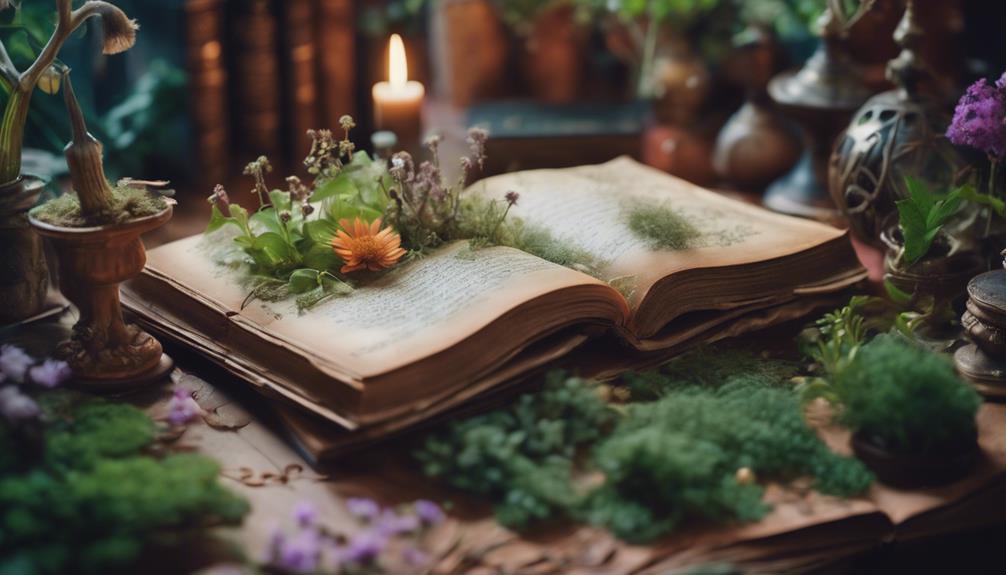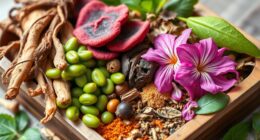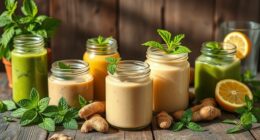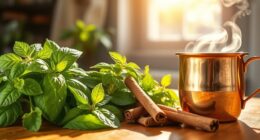We've been curious about herbalism for centuries, and while some traditional remedies have been backed by modern science, others remain uncertain. Herbalism is based on active compounds in plants, which can impact physiological processes. Research aims to understand how these compounds work, but rigorous testing is essential to verify traditional remedies. Many herbal remedies rely on traditional use rather than scientific research, and efficacy rates vary. While some show promising results, more research is needed to establish their effectiveness. As we explore the complexities of herbalism, we're finding that separating fact from fiction is imperative – and there's more to uncover.
Key Takeaways
• Herbal remedies' efficacy rates vary depending on the herb and individual response, with some showing promising results in treating certain conditions.
• Clinical trials have produced mixed results regarding the effectiveness of herbal remedies, with some studies supporting their use and others showing no significant benefits.
• While traditional knowledge influences modern herbal remedies, rigorous scientific research is essential to establish credibility and verify traditional remedies through testing.
• Lack of regulation leads to a lack of standardization among herbal supplement manufacturers, making it crucial to approach herbalism with a critical eye.
• Integrating traditional herbal knowledge with modern scientific methods is essential to determine the effectiveness and safety of herbal remedies.
The Science Behind Herbalism
As we explore the world of herbalism, it's important to examine the scientific foundation that underpins this traditional practice. We're not just talking about grandma's old remedies; we're talking about medicines backed by science.
Herbal remedies, after all, are based on the idea that plants contain active compounds that can impact our physiological processes. Think flavonoids, alkaloids, and terpenes – these bioactive compounds can have real effects on our bodies.
Scientific research is ongoing to understand how these compounds work and what health benefits they might offer. Clinical trials are conducted to assess the safety, efficacy, and potential side effects of herbal remedies. While the evidence can vary in quality and quantity, it's important to separate the wheat from the chaff.
By integrating traditional herbal knowledge with modern scientific methods, we can establish the credibility and effectiveness of herbalism. It's not about dismissing the old ways, but about verifying their validity through rigorous testing.
Separating Fact From Fiction
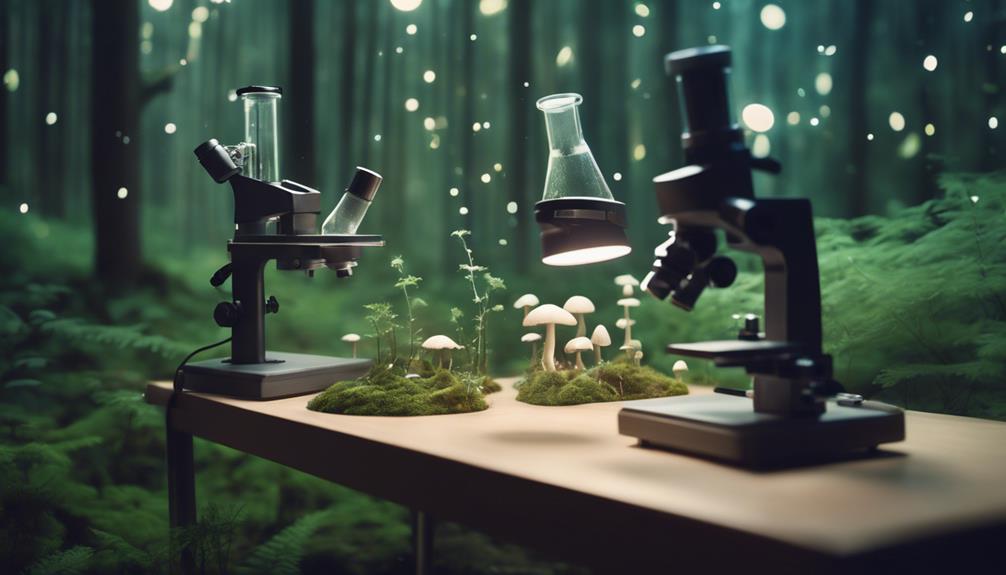
Weeding out misinformation is vital when it comes to herbal remedies, and that means separating the evidence-backed claims from the anecdotal tales and unproven assertions. As we explore the world of herbal medicine, it's important to distinguish between fact and fiction.
When it comes to herbal remedies, we need to be aware of the following pitfalls:
- Lack of regulation: Herbal supplements aren't subject to the same testing and regulations as pharmaceutical drugs, leading to a lack of standardization among manufacturers.
- Potential side effects: Herbal remedies may interact with other medications, potentially reducing their effectiveness or causing unexpected side effects.
- Unproven claims: Many claims about herbal remedies are based on traditional use rather than rigorous research, making it essential to consult with a healthcare provider before using them.
Effectiveness of Herbal Remedies
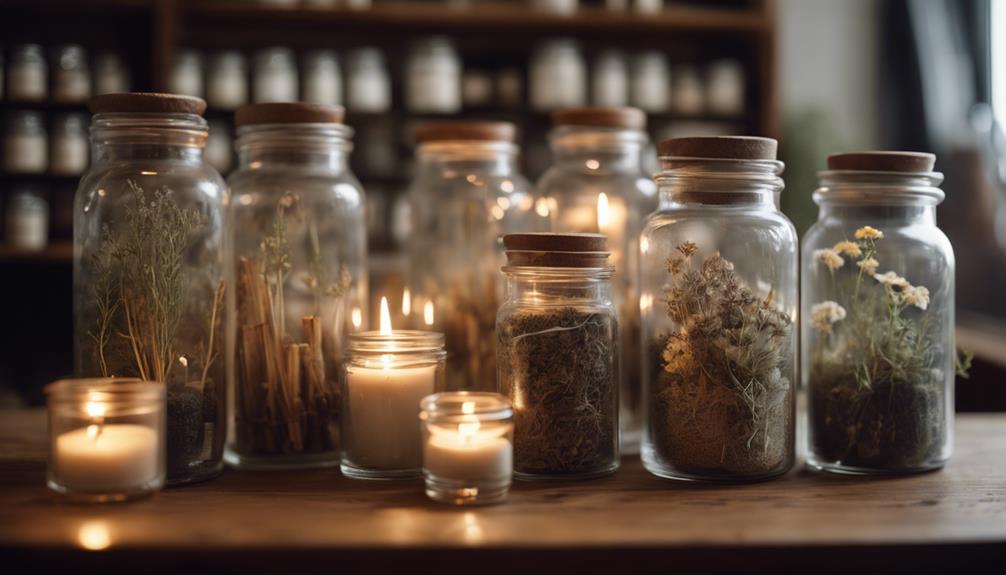
As we explore the effectiveness of herbal remedies, we're interested in examining the hard data behind their claimed benefits.
We'll look at the efficacy rates of various herbal remedies, the results of clinical trials, and the scientific evidence that supports – or doesn't support – their use.
Herbal Remedy Efficacy Rates
When evaluating the effectiveness of herbal remedies, we're often faced with a mixed bag of results, with some remedies showing promise and others falling short. While some herbal remedies have been used for centuries based on traditional use, the scientific evidence backing their efficacy rates is often limited.
In many cases, the efficacy rates of herbal remedies vary widely depending on the specific herb and the individual's response. For instance:
- Limited scientific evidence: Many herbal remedies rely on traditional use rather than rigorous scientific research for efficacy.
- Varied clinical trial results: Clinical trials for herbal remedies are registered, but their results may vary in proving effectiveness.
- Promising results: Some herbal remedies have shown promising results in treating certain conditions, but more research is needed.
It's essential to approach herbal remedies with a critical eye, recognizing both their potential benefits and limitations. By understanding the complexities of herbal remedy efficacy rates, we can make informed decisions about their use in our health regimens.
Clinical Trial Results
We've seen how the efficacy rates of herbal remedies can vary widely, and now we're going to examine the results of clinical trials to better understand their effectiveness. Clinical trials have produced mixed results, with some studies supporting the use of herbal remedies for certain conditions, while others haven't shown significant benefits compared to a placebo. This variability highlights the need for more research to establish the efficacy of herbal treatments.
Evidence from clinical trials is important in determining the safety, dosage, and effectiveness of herbal remedies for specific health conditions. By examining the outcomes of clinical trials, we can gain valuable insights into the therapeutic potential of herbal medicines and inform healthcare decisions. It's crucial to take into account the results of these trials when evaluating the effectiveness of herbal remedies.
Scientific Evidence Basis
While evaluating herbal remedies, we consider the scientific evidence basis, which often relies more on traditional use than rigorous scientific research, to determine their effectiveness. This limited scientific evidence raises concerns about the efficacy and safety of herbal remedies. However, there are efforts to improve the scientific rigor.
For instance, clinical trials on herbal medicine are registered on platforms like Clinicaltrials.gov to assess safety and efficacy. Additionally, DNA barcoding is used to detect contamination in herbal products, ensuring quality and safety.
Here are some key points to note:
- Clinical trials are conducted to assess the safety and efficacy of herbal remedies.
- DNA barcoding is used to detect contamination in herbal products, ensuring quality and safety.
- Aromatherapy's effects on mood, physiology, and behavior are scientifically analyzed to understand its potential benefits.
Herbal Medicine in Modern Times
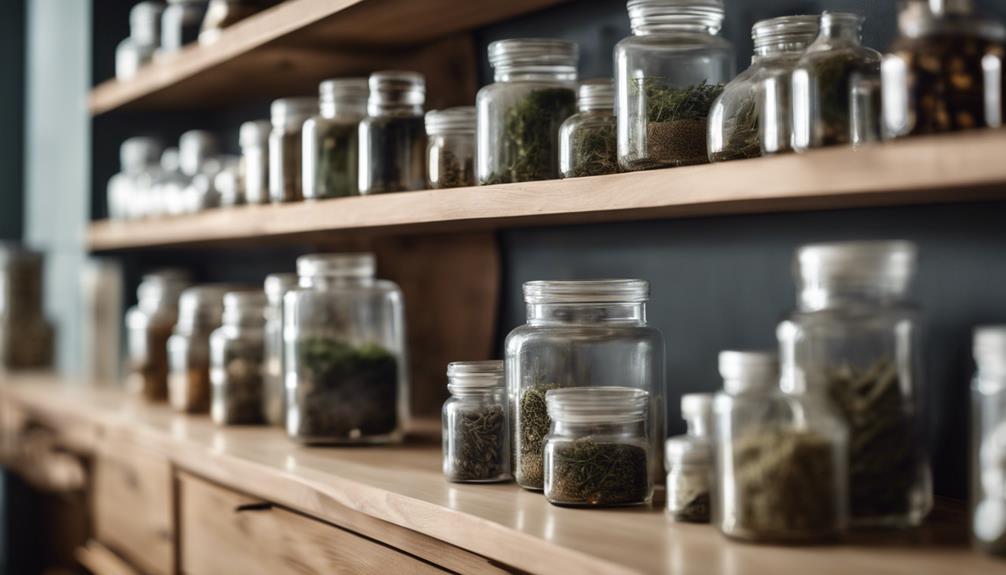
As we explore herbal medicine in modern times, we're faced with a unique blend of traditional roots and modern practices.
We're curious to see how ancient remedies are being integrated with conventional medicine, and what modern technologies are being utilized to guarantee the quality and safety of herbal products.
Modern Herbal Practices
Today, herbal medicine plays a significant role in modern healthcare, with the World Health Organization estimating that around 80% of some Asian and African populations rely on herbal remedies to meet their primary healthcare needs. As we explore modern herbal practices, we find that some prescription drugs have origins in herbal remedies, highlighting the continued relevance of herbal practices in modern healthcare.
Despite the widespread use of herbal medicine, limited scientific evidence exists for the safety and efficacy of many herbal plants used in modern herbal medicine. To address this, clinical trials on herbal medicine are registered on platforms like Clinicaltrials.gov to assess their effectiveness. Additionally, DNA barcoding is utilized to detect any potential contamination in herbal products used in modern herbal practices.
Here are some key aspects of modern herbal practices:
- Clinical trials: Many herbal medicine trials are registered on Clinicaltrials.gov to assess their effectiveness.
- Contamination detection: DNA barcoding is used to detect potential contamination in herbal products.
- Regulation: Efforts are being made to regulate the quality and safety of herbal products.
As we navigate the complex world of modern herbal practices, it's clear that there's still much to be learned about the safety and efficacy of herbal medicine.
Traditional Roots Today
We turn our attention to the traditional roots of herbal medicine, exploring how ancient practices continue to influence modern herbal remedies. With a history spanning over 5,000 years, traditional medicine has played a significant role in shaping the herbal remedies we use today.
In fact, approximately 80% of some Asian and African populations still rely on herbal remedies for their health needs. What's more, some prescription drugs have their origins in herbal remedies, highlighting the historical significance and potential efficacy of herbal medicine.
However, we must acknowledge that limited scientific evidence exists for the safety and efficacy of many herbal plants. This emphasizes the need for further research and regulation in the field.
Fortunately, herbal medicine is an ongoing area of scientific study, with numerous clinical trials registered to evaluate the effectiveness and safety of herbal compounds. Moving forward, it's crucial to strike a balance between honoring traditional practices and ensuring the safety and efficacy of modern herbal remedies.
Integrating With Conventional
In recent years, herbal medicine has increasingly found its way into conventional medical practices, with many healthcare professionals now incorporating herbal remedies into their treatment protocols. As we explore the integration of herbal medicine with conventional medicine, it's important to acknowledge the growing recognition of herbal medicine's potential benefits.
We've seen a significant shift towards evidence-based herbal medicine, with clinical trials registered on platforms like Clinicaltrials.gov to assess the efficacy of herbal remedies. This move towards scientific validation is critical, as limited scientific evidence exists for the safety and efficacy of many herbal plants.
Here are three key areas where herbal medicine is being integrated with conventional medicine:
- Prescription drugs with herbal origins: Many prescription drugs have their roots in herbal remedies, highlighting the potential for herbal medicine to inform conventional medical practices.
- Clinical trials and research: Clinical trials and research studies are being conducted to gather scientific evidence on the safety and efficacy of herbal remedies.
- Development of herbal medicinal agents: Modern herbal medicine emphasizes the importance of using scientific principles in developing herbal medicinal agents for better understanding and efficacy.
Understanding Herbal Supplements
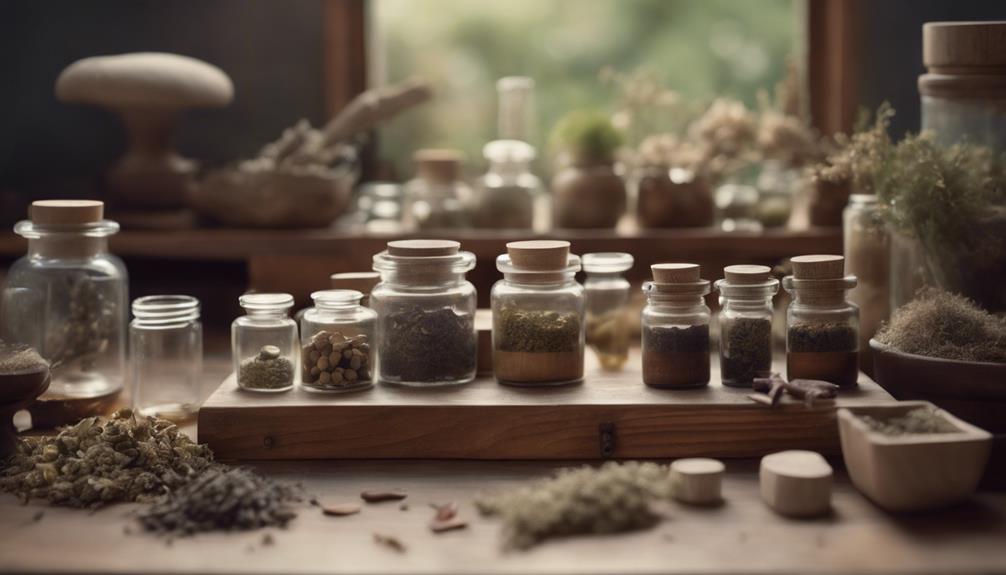
As we explore the world of herbal supplements, it's important to acknowledge that these plant-based products have been a common feature in the U.S. healthcare landscape for thousands of years. We've grown accustomed to using herbal supplements as alternative medicines to address various health conditions.
However, it's important to understand that the FDA considers these products as foods, not medicines, which means they aren't subject to the same testing and regulations as conventional medications.
When choosing herbal supplements, we need to be cautious. Labels can't claim to treat specific health conditions, and there's limited research proving that herbs can cure health problems. We must be aware of potential interactions with conventional medicines and educate ourselves on the herbs we use.
Working with a trained healthcare provider is also crucial. Some common herbal supplements include black cohosh for menopausal conditions, echinacea to boost the immune system, and garlic for cardiovascular conditions.
Debunking Herbal Medicine Myths

What's behind the widespread assumption that herbal remedies are inherently safe and effective, when in reality, many are neither? We've bought into the myth that herbal medicines are regulated, but the truth is, many products lack standardization and quality control. This misconception has serious consequences, as herbal medicines can interact with conventional medications, leading to adverse reactions.
Here are just a few reasons why we need to reassess our assumptions about herbal remedies:
- Lack of scientific research: Many herbal remedies lack conclusive evidence to support their effectiveness.
- Unregulated products: Not all herbal products are regulated or standardized, leading to variations in quality and potency.
- Interactions with medications: Herbal medicines can interact with conventional medications, potentially causing harmful effects.
We need to acknowledge that herbal medicines aren't always safe or effective. It's time to separate fact from fiction and approach herbalism with a critical eye. By doing so, we can make informed decisions about our health and well-being.
The Future of Herbalism
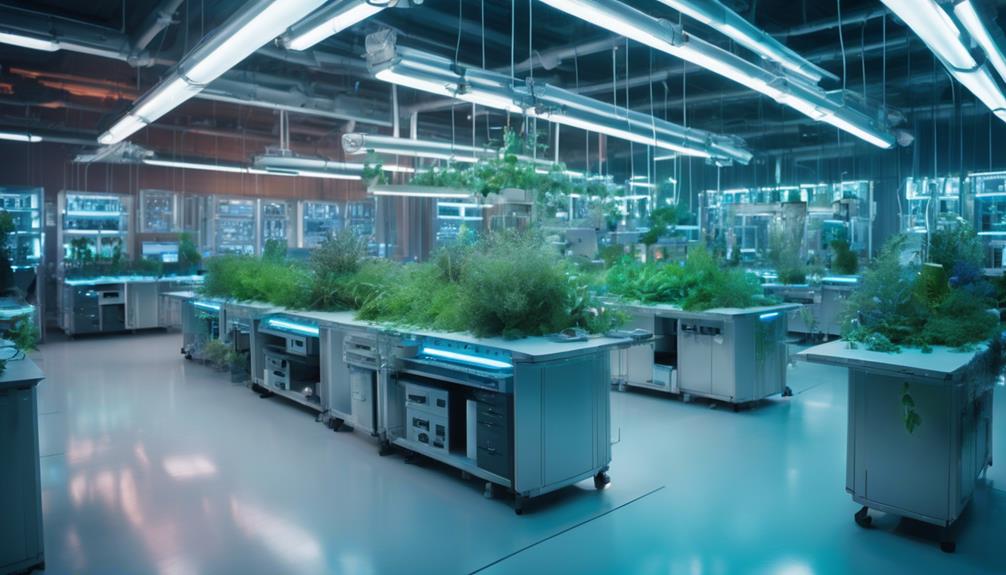
We're poised to witness a transformative era in herbalism, where rigorous scientific inquiry and traditional knowledge converge to shape the future of herbal medicine. As we look ahead, research is focusing on integrating herbal remedies into conventional healthcare systems, allowing for a more holistic approach to patient care.
Modern scientific studies are investigating the efficacy and safety of herbal remedies to determine their role in treating various health conditions. To guarantee consistency and safety, quality standards for herbal products will be enhanced, and innovations in herbal medicine will involve developing new formulations, delivery methods, and standardized dosages for improved effectiveness.
Additionally, ongoing efforts will continue to bridge traditional knowledge with modern scientific research to validate the therapeutic properties of herbal remedies. By doing so, we can unleash the full potential of herbalism, providing patients with more treatment options and improving overall health outcomes.
As we move forward, we're excited to see the impact that herbalism can have on modern medicine.
Frequently Asked Questions
Does Herbal Medicine Really Work?
We're left wondering, does herbal medicine really work? While some remedies have been used for centuries, the lack of scientific evidence raises doubts. Even though some prescription drugs originated from herbal remedies, limited research supports their efficacy.
As clinical trials evaluate safety and efficacy, we must weigh the benefits and risks. It's essential to separate fact from tradition and folklore, acknowledging the potential benefits while considering the limitations of herbal medicine.
Are Herbalists Legitimate?
We acknowledge the skepticism: 'Are herbalists just quacks?' Not quite. Herbalists undergo specific training and education in herbal medicine, traditional healing practices, and holistic approaches to wellness. They recommend evidence-based remedies tailored to individual needs.
While some operate within mainstream healthcare, others practice independently. Legitimate herbalists are committed to providing natural healthcare options, and many people seek them out as a viable alternative or complement to conventional medicine.
What Does Herbalist Actually Do?
As we explore the world of herbalism, we find that herbalists play a multifaceted role.
We assess individual health needs, creating personalized treatment plans that consider physical, emotional, and spiritual aspects.
We use various herbal preparations like teas, tinctures, and salves to promote healing and well-being.
Is Herbalism a Real Job?
'Break a leg' with this surprising fact: herbalism is a real job!
We're not just talking about grandma's homemade remedies; modern herbalists are trained professionals who assess individual health needs and recommend evidence-based herbal treatments.
As a growing profession, herbalists work in clinics, wellness centers, or private practice, offering personalized consultations and remedies.
With a strong foundation in traditional knowledge and modern research, herbalism is a legitimate career path that's gaining popularity.
Conclusion
So, does herbalism actually work? Ironically, the answer is both yes and no. While some herbal remedies have shown promising results, others are nothing more than expensive placebos.
As we've seen, the science behind herbalism is complex, and separating fact from fiction is essential. By understanding the effectiveness of herbal remedies and debunking myths, we can harness the power of herbal medicine in modern times.
Now, it's up to us to separate the wheat from the chaff and uncover the true potential of herbalism.

